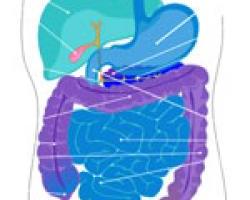Cancer Types
- Appendix
- Bladder
- Bone
- Brain
- Breast
- Cervical
- Childhood cancers
- Endometrial
- Esophageal
- Eye
- Gallbladder
- Gastrointestinal
- Colon cancer
- Colorectal
- Gastrointestinal Carcinoid Tumor
- Small Intestine
- Stomach
- Head and Neck
- HIV and AIDS Related
- Kaposi Sarcoma
- Kidney
- Leukemia
- Liver
- Lung
- Lymphoma
- Mesothelioma
- Metastatic
- Multiple Myeloma
- Nasopharyngeal
- Oral
- Metastatic Cancer
- Ovarian
- Pancreatic
- Parathyroid
- Penile
- Prostate
- Rectal
- Recurring Cancers
- Sarcomas
- Secondary (Metastatic)
- Skin
- Squamous Cell
- Testicular
- Thyroid
- Vaginal
- Vulvar
Symptom Management
Treatment Types
- Adjuvant Chemotherapy
- Biological Therapy
- Cesium Chloride
- Chemotherapy
- Abraxane
- Bisphosphonate
- Bleomycin
- Cyclophosphamide
- Dacarbazine
- Docetaxel (Taxotere)
- Doxorubicin (Adriamycin)
- Estramustine
- Etoposide
- Ifosfamide
- Mechlorethamine
- Mitoxantrone
- Oral Chemotherapy
- Paclitaxel (Taxol)
- Pixantrone (Pixurvi)
- Platinum-based chemotherapy
- Prednisone
- Procarbazine
- Tamoxifen
- Vinblastine
- Vincristine
- Vinorelbine
- Chemotherapy Regimens
- Clinical Trials
- Chemoprevention
- Cryosurgery
- Gene Therapy
- Gerson Therapy
- Hormone Therapy
- Laser Therapy
- Platinum-based Therapy
- Radiotherapy
- Surgery
- Targeted Therapies
- Pain Management
- Proton Therapy
- Radioimmunotherapy
- Transplants
- Vaccines
- Watchful Waiting
Topics
Peritoneal Cancer Survival Rate
Primary peritoneal cancer (PPC) is a very rare cancer that affects a very particular part of the body. In your abdomen, covering all the organs located there, lubricating them so they can move around and acting as a "conduit for blood, lymphatic vessels and nerves" is a very thin membrane known as the peritoneum.
When cancer develops in the cells of this membrane, it is known as primary peritoneal cancer. because it affects a surface of the body, it is designated as a carcinoma.
Symptoms of Primary Peritoneal Cancer
General, non-specific symptoms that are associated with PPC are:
- Abdominal swelling or bloating
- Abdominal pain
- Indigestion
- Abnormal vaginal bleeding
- Nausea
- Altered appetite
- Unexplained changes in weight
- Frequent urination
- Constipation
- Diarrhea
Symptoms in this cancer tend to mimic those found in ovarian cancer.
Survival Rates of Primary Peritoneal Cancer
PPC is not typically diagnosed until the disease is in its later stages, thereby leading to a progressively poor prognosis. While there are no definitive, confirmed statistics for survival rates of primary peritoneal cancer, they are estimated by various sources to be similar to those of ovarian cancer, at least in terms of metastasized disease, although the prognosis is slightly worse.
This means that the estimated 5 year survival percentage of patients with advanced PPC is around 27 percent. Median survival times vary but are estimated to be between 12 and 18 months.
Sources
Primary Peritoneal Cancer Foundation
UCSF Medical Center, Peritoneal Cancer
National Cancer Institute SEER Stat Fact Sheets: Ovarian cancer
Yonemura Y et al. Quantitative prognostic indicators of peritoneal dissemination of gastric cancer. Eur J Surg Oncol. 2006 Aug;32(6):602-6.
The information provided on CancerTreatment.net is designed to support, not replace, the relationship that exists between a patient/site visitor and his/her health professional. This information is solely for informational purposes and does not constitute the practice of medicine. We encourage all visitors to see a licensed physician or nutritionist if they have any concerns regarding health issues related to diet, personal image and any other topics discussed on this site. Neither the owners or employees of CancerTreatment.net nor the author(s) of site content take responsibility for any possible consequences from any treatment, procedure, exercise, dietary modification, action or application of medication which results from reading this site. Always speak with your primary health care provider before engaging in any form of self treatment. Please see our Legal Statement for further information.

